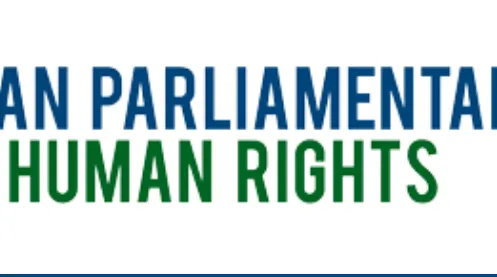ASEAN must take stronger stance beyond Five-Point Consensus, Southeast Asian MPs say
24 April 2023

JAKARTA – On the two-year anniversary of the Five-Point Consensus, lawmakers from Southeast Asia call on ASEAN to acknowledge that the Consensus signed in April 2021 has failed miserably and that the Myanmar junta led by Senior General Min Aung Hlaing should not to be trusted to fulfill the obligations outlined in the proposed agreement.
“The recent airstrikes in the Sagaing region, which killed hundreds of civilians, including children, are further evidence that the Myanmar junta is completely unwilling and incapable of adhering to the Five-Point Consensus,” ASEAN Parliamentarians for Human Rights (APHR) Chair and member of the Indonesian House of Representatives Mercy Barends said today. “If ASEAN insists on sticking to an agreement that has proven to be utterly ineffective then it is complicit in the ongoing crimes and atrocities of the junta.”
On April 24, 2021, the leaders of nine ASEAN member states and Myanmar junta chief, Senior General Min Aung Hlaing, agreed to the following five points: an immediate end to violence in the country; dialogue among all parties; the appointment of a special envoy; humanitarian assistance by ASEAN; and the special envoy’s visit to Myanmar to meet with all parties.
The International Parliamentary Inquiry into the global response to the Myanmar coup (IPI), which was organized by APHR, indicated in its final report in November 2022, “it is clear that the FIve-Point Consensus has failed, and a new mode of engagement is needed in its place.” As one witness noted in their testimony to the IPI, from the start, it was “thoroughly clear that Min Aung Hlaing was insincere in signing it and had no intention of following it.”
The Consensus’ first point on the cessation of violence has been blatantly ignored by the junta, as evidenced by the ongoing airstrikes and malicious attacks against unarmed civilians. Meanwhile, ASEAN’s intention to provide humanitarian aid, as noted in the IPI report, has been “stymied by a lack of resources and genuine commitment.” The ASEAN Special Envoy position has also proven to be ineffective, especially since it changes along with the ASEAN chair.
“ASEAN’s weak-willed approach toward the junta is a complete disgrace. Even after it finally criticized the junta’s airstrikes in Sagaing, the ASEAN Secretary-General still met with the junta’s permanent representative to ASEAN, making any statement of condemnation little more than lip service,” said APHR Co-chair and former Malaysian member of parliament Charles Santiago. “Indonesia’s ‘soft-diplomacy’ approach as ASEAN chair has also yet to yield results and must be urgently reevaluated. Indonesia must take a stronger stance and be transparent on how they are addressing the Myanmar crisis, especially given the limited amount of time left in their chairmanship.”
In a roundtable discussion at the Indonesian House of Representatives in Jakarta on March 3, dozens of parliamentarians from several Southeast Asian countries urged ASEAN and the international community at large to take swift and concrete action against the illegal military junta led by Senior General Min Aung Hlaing, and provide real assistance to the pro-democracy forces in Myanmar, including by recognizing the National Unity Government (NUG) and having open and public negotiations that include the NUG, ethnic groups, and other pro-democracy forces.
“ASEAN needs to live up to its role as a regional mediator and it needs to do so immediately, starting with Indonesia as chair. Closed-door and informal meetings are no longer enough,” said Santiago. “It is clear that ASEAN needs to negotiate a new agreement that includes the National Unity Government and the representatives of ethnic minorities while providing clear enforcement mechanisms to ensure that the agreement is upheld.”
Download full statement in Thai | Indonesian
View the original
Announcements
28 February 2025
Asian NGO Network on National Human Rights Institutions , CSO Working Group on Independent National Human Rights Institution (Burma/Myanmar)
Open letter: Removal of the membership of the dis-accredited Myanmar National Human Rights Commission from the Southeast Asia National Human Rights Institution Forum

Progressive Voice is a participatory rights-based policy research and advocacy organization rooted in civil society, that maintains strong networks and relationships with grassroots organizations and community-based organizations throughout Myanmar. It acts as a bridge to the international community and international policymakers by amplifying voices from the ground, and advocating for a rights-based policy narrative.